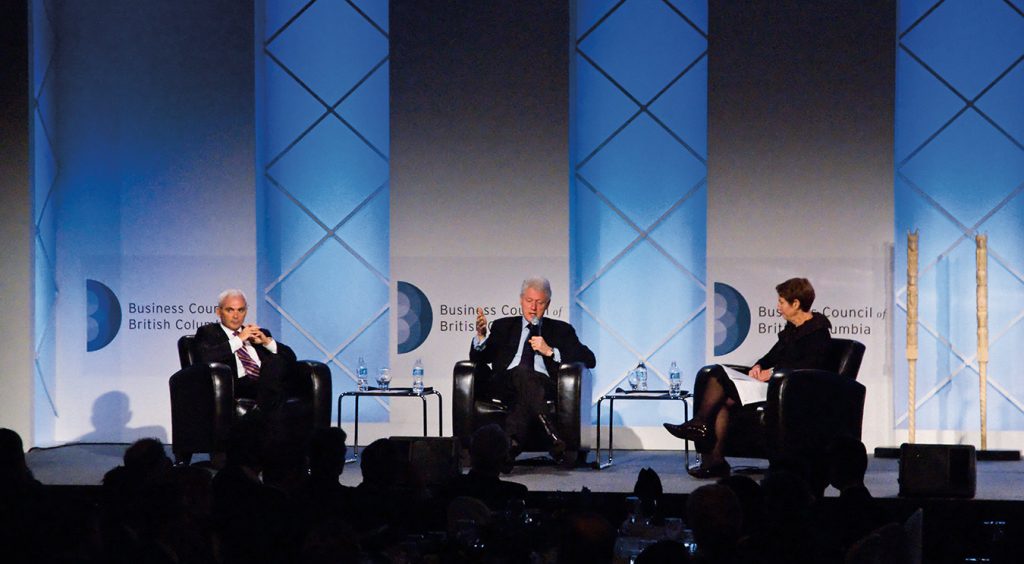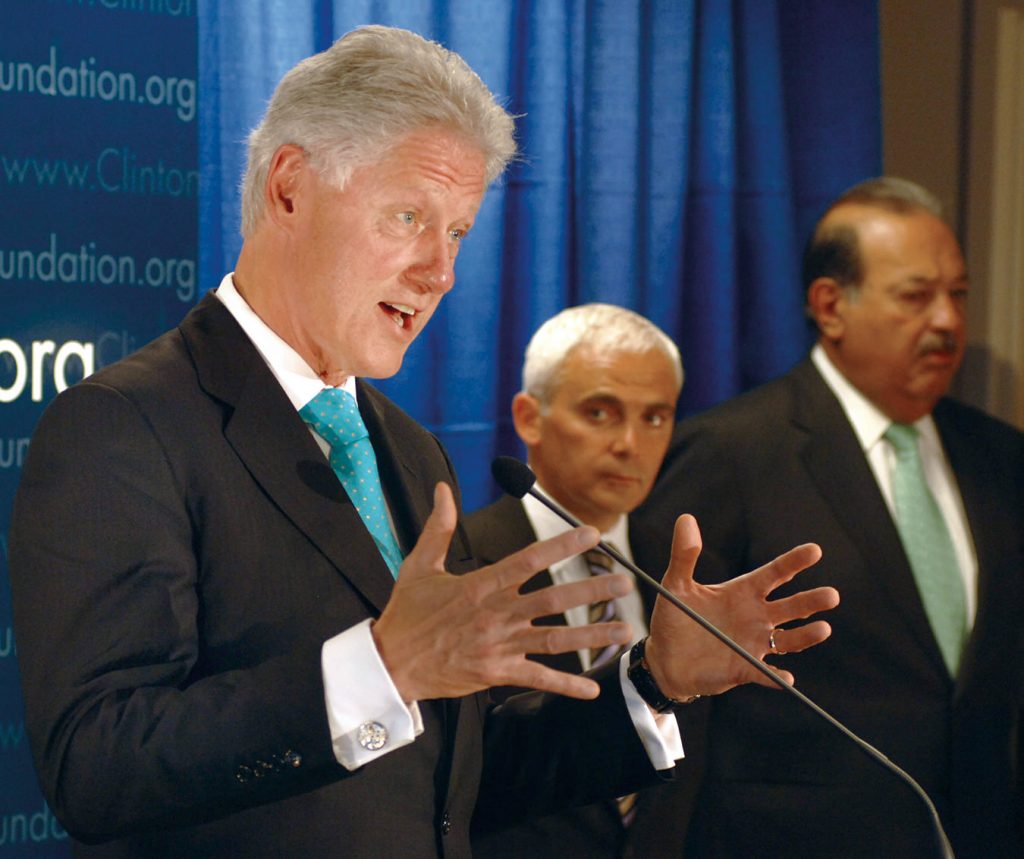Waking up one morning, Frank Giustra decided that he had the means to make a significant, and positive, contribution to the world, beyond his own personal financial security. “I have had good success in business,” he says. “But at some point, I realized my legacy might be wealth building more wealth. And that is really not a good enough reason to do something. So, the idea of surplus wealth being put to other purposes, for social good, is the answer.”
There were some role models: “I remember simply walking around some of the big American cities, and seeing what kind of lasting impact, sustained contribution, people like Rockefeller and Carnegie have. The Gospel of Wealth is still a book I admire to this day.” He made the decision to find ways to use his wealth to effect change: “The private sector needs to take a larger role. There is too much wealth, a lot of it created fairly recently, in the hands of too few people. Historically, that is a trend that, if it continues, will end badly.” Mr. Giustra is a bit of a student of history, and would like to avoid repeating the mistakes that have been made in the past. This philosophical decision became reality when he made a commitment to join forces with former president Bill Clinton, and form the Clinton Giustra Sustainable Growth Initiative.
For Giustra, this partnership made a lot of sense. “President Clinton has a truly amazing ability to communicate with people, to reach people. I told him that quality is what we need, along with a strong business plan.” He pauses briefly. It does not take long for Mr. Giustra to warm to the topic. “The trend is to tap not only into wealth, but business knowledge as well. What we want is an operation that is transparent, and has measurable results. With Mr. Clinton, we want to ensure all the stakeholders are on side. That means every level of government from national to civic, corporations, and the people in that country.”
Mr. Clinton, who commented on the Initiative at a Business in B.C. lunch seminar, makes some key points: “There are a lot of people all over the world with good intentions. Frank has a plan, and he will make this happen. He is the kind of partner I love to have.” He goes on to say, “What I like about Frank is that he really cares about this. Not just to ‘do good’, but to do it in a systematic way. And always keeping in mind that when you go into another country, to work with another culture, your great idea is not as workable as their good idea.” Those are vital insights that inform Mr. Giustra’s firm commitment to sustainable business models, so that the Initiative’s projects will actually work over time.
Eric Nonacs was President Clinton’s Foreign Policy advisor for five years, and agreed to join the Clinton Giustra Initiative about 18 months ago. “Frank and the President are such a great match, in terms of the different things they bring to the same agenda. State of the art philanthropy these days is building consensus between stakeholders, and that includes all levels of government, but particularly, the private sector as well. Trust has to be built, almost one on one. In most places in the world, local communities are entities unto themselves, so that must be understood. The local buy-in has to be there, or there is not sustainability.” He pauses, then adds, “We do leverage Bill Clinton’s name, because he is respected around the world as an honest broker. And he stays true to the model we are building. In Peru, we just accept the fact that the Peruvians know what they need better than we do.” The Initiative looks at capital, capacity and technical expertise as their contributions. They look for political leadership that is dedicated to improving the welfare of its citizens, as well, so that the political will to address specific needs in a country is there. Mr. Nonacs adds one more insight: “the epiphany is to understand, from a private sector point of view, that philanthropy is not only a ‘nice idea’. Responsible corporate citizenship is ‘mission critical’.”
At this point, work has begun in Colombia and to a lesser degree in Peru. There are plans for work in Africa as well, which would dovetail with Mr. Clinton’s current efforts there. Predicated on the fact that the mines that are currently in operation in Colombia and Peru will have finite life spans, for now the Initiative’s projects there are dedicated to creating long-term jobs for the people working and living there. While the environmental responsibilities are being fully exercised, and many mines are models of ecological sensitivity, the question of what happens after the mine closes looms large. That is where the Initiative brings its expertise and its funds to create alternative employment and to repatriate the land. “It has to be a cohesive effort,” Mr. Giustra emphasizes. “And I want this work of mine to be an example to other wealthy individuals. I don’t want to simply spend all my money. That wouldn’t, in the end, be enough. We need other people to contribute, people who clearly have the means. It is a little bit of vision, and a lot of leadership, to get this going.” He pauses again, and adds, “We want these individuals to develop an addiction to philanthropy.”
The model is not confined to the mining industry, either. “That is where we began, because that is what I know, and that is where I know people. My anxiety is to make it work, to get results, so this is the natural place to start. But it will grow, and the trend towards growing inequality in this world will at some point be reversed. This will touch people’s lives.”
Mr. Giustra frequently makes reference to films: “I love films. I used to be in the movie business, a while ago.” He mentions Lt. Colonel Nicholson in Bridge on the River Kwai, memorably played by Sir Alec Guinness. “He understood how to get a certain job done, and how to build consensus in order to achieve that. But he ultimately failed to see the bigger picture, and the project—the bridge—became bigger than the ideals he represented, and was fighting for in the first place.” Mr. Giustra smiles, and leans forward. “The bottom 50 per cent of individuals on this planet own 1 per cent of its wealth. Society cannot function properly if that continues. Our model will show that it is possible to make positive changes.” It is easy to see why Mr. Clinton wants this man as his partner: good things are going to get done.










